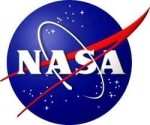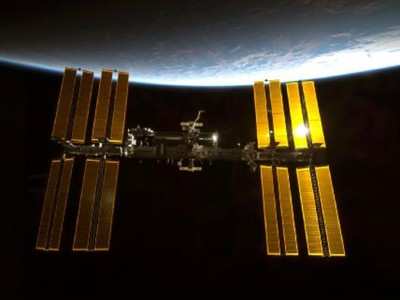Fri, Jul 16, 2010
NASA Picks Nine Experiments In Program's Inaugural Year
 NASA has selected nine experiments, designed by students at
seven schools, for astronauts to perform on the International Space
Station this summer. NASA selected the proposals from among 132
received for the new Kids in Micro-g! Program.
NASA has selected nine experiments, designed by students at
seven schools, for astronauts to perform on the International Space
Station this summer. NASA selected the proposals from among 132
received for the new Kids in Micro-g! Program.
This is the pilot year for the program, a student experiment
design challenge geared toward grades five through eight. Its
purpose is to give students a hands-on opportunity to design
experiments or simple demonstrations for testing both in the
classroom and in the station's microgravity environment. The
winners were chosen by a team of representatives from NASA's 10
field centers.
"What a wonderful experience for these kids to have their
experiments carried out in space and by astronauts," said Mark
Severance, International Space Station National Laboratory
Education projects manager at NASA's Johnson Space Center in
Houston. "This gives students the chance to see what happens
differently, other than in the classroom, when their experiment is
performed in an environment that is not on Earth."
The schools chosen to participate are:
- National Winner and NASA Glenn Research Center Regional Winner
Brownell Middle, Grosse Point Farms, MI.
- National Runner-up and NASA Kennedy Space Center Regional
Winner Vaughan Elementary, Powder Springs, GA.
- NASA Ames Research Center Regional Winner Hamlin School, San
Francisco, CA.
- NASA Goddard Space Flight Center Regional Winners (tie) East
Hartford-Glastonbury Magnet, East Hartford, CT and Carl Sandburg
Middle, Old Bridge, NJ.
- NASA Kennedy Space Center Regional Winner Windy Ridge
Elementary, Orlando, FL.
- NASA Langley Research Center Regional Winner Virginia Academy,
Ashburn, VA.

The experiments will study the effect of weightlessness on
various subjects such as humans and liquids and other materials, as
well as what the environment reveals about the laws of physics. The
experiments are expected to have observably different results in
microgravity than when performed in the classroom.
The apparatus for the experiments was constructed using the same
materials as a tool kit previously provided to astronauts on the
space station. The materials in the tool kit are commonly found in
the classroom and used for science demonstrations. The proposed
experiments or demonstrations are required to take no more than 30
minutes to set up, run and take down.
This fall, the program will ask for proposals for 2011.
More News
Aero Linx: International Federation of Airworthiness (IFA) We aim to be the most internationally respected independent authority on the subject of Airworthiness. IFA uniquely combi>[...]
Ultrahigh Frequency (UHF) The frequency band between 300 and 3,000 MHz. The bank of radio frequencies used for military air/ground voice communications. In some instances this may >[...]
A Few Questions AND Answers To Help You Get MORE Out of ANN! 1) I forgot my password. How do I find it? 1) Easy... click here and give us your e-mail address--we'll send it to you >[...]
From 2019 (YouTube Edition): Learning To Paint Without Getting Any On Your Hands PPG's Aerospace Coatings Academy is a tool designed to teach everything one needs to know about all>[...]
Also: Sustainable Aircraft Test Put Aside, More Falcon 9 Ops, Wyoming ANG Rescue, Oreo Cookie Into Orbit Joby Aviation has reason to celebrate, recently completing its first full t>[...]
 ANN's Daily Aero-Linx (05.06.25)
ANN's Daily Aero-Linx (05.06.25) ANN's Daily Aero-Term (05.06.25): Ultrahigh Frequency (UHF)
ANN's Daily Aero-Term (05.06.25): Ultrahigh Frequency (UHF) ANN FAQ: Q&A 101
ANN FAQ: Q&A 101 Classic Aero-TV: Virtual Reality Painting--PPG Leverages Technology for Training
Classic Aero-TV: Virtual Reality Painting--PPG Leverages Technology for Training Airborne 05.02.25: Joby Crewed Milestone, Diamond Club, Canadian Pilot Insurance
Airborne 05.02.25: Joby Crewed Milestone, Diamond Club, Canadian Pilot Insurance




